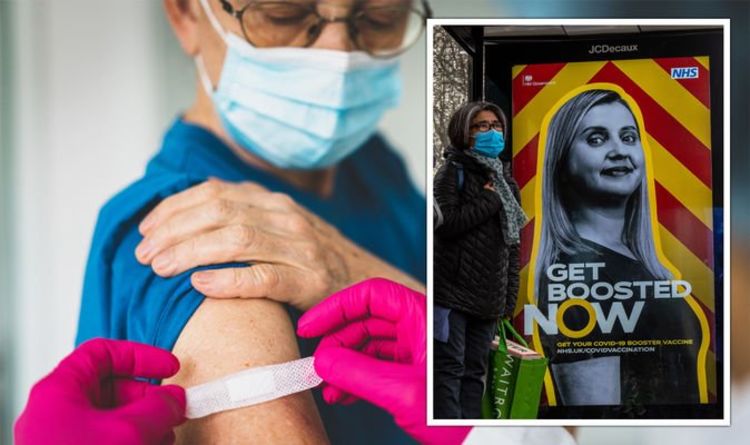Vaccines: Professor says vulnerable may need fourth jab
We use your sign-up to provide content in ways you’ve consented to and to improve our understanding of you. This may include adverts from us and 3rd parties based on our understanding. You can unsubscribe at any time. More info
More than 35 million booster jabs have been given in the UK so far, but what is the likelihood of the nation being asked to get vaccinated for a fourth time against coronavirus? As countries including Israel and Chile announce plans to jab vulnerable groups of their populations for a fourth time, when will the UK follow suit?
Israel is set to offer the widest national rollout of a fourth jab of any country so far, introducing another booster for people aged over 60, as well as frontline medical staff.
In a press conference, Prime Minister Naftali Bennett said the country had to “act swiftly and decisively” in its decision to expedite the fourth jab to a greater portion of the population.
A fourth dose of the vaccination was already available in Israel for immunocompromised people, residents of care homes and patients on geriatric wards.
Following Israel’s decision to roll out the fourth jab, Chile has followed suit and is preparing to offer a fourth jab to the over-55s from February onwards, the Associated Press reported.


Immunocompromised people in Britain are already being offered a fourth dose of the vaccine because they are at greater risk of severe illness from coronavirus, and tend to have a lower antibody response to the vaccine. But will other vulnerable groups be offered the jab next?
Will the UK offer a fourth vaccine to more groups of people?
The Joint Committee on Vaccination and Immunisation (JCVI) has given the strongest indication so far that Britain will not be offering a fourth jab to wide sections of the population.
A recent statement from the JCVI revealed a third or “booster” jab of a coronavirus vaccine offers about 90 percent protection against hospitalisation for people aged 65 and over.

Professor Wei Shen Lim, the JCVI’s chair of COVID-19 immunisation, said: “The current data shows the booster dose is continuing to provide high levels of protection against severe disease, even for the most vulnerable older age groups.
“For this reason, the committee has concluded there is no immediate need to introduce a second booster dose, though this will continue to be reviewed.”
While the JCVI is not advising a fourth dose to larger groups of the population, its latest data demonstrates how much a third jab can reduce the risk of severe illness from coronavirus.
The JCVI’s data found a third jab increased protection to 90 percent for over-65s, while with just two vaccine doses, protection against severe disease drops to about 70 percent after three months and to 50 percent after six months.
DON’T MISS:
Omicron symptoms: The surprising sign when you go to the toilet [UPDATE]
Omicron symptoms timeline: 8 Omicron symptoms and when you’ll get them [INSIGHT]
Omicron: The ‘warning’ in your skin, lips and nails [ANALYSIS]

The data also revealed that while protection against severe disease is high after a booster dose, “protection against mild symptomatic infection is more short-lived and drops to around 30 percent by about three months”.
Professor Wei Shen Lim added: “With Omicron continuing to spread widely, I encourage everyone to come forward for their booster dose, or if unvaccinated, for their first two doses, to increase their protection against serious illness.”
Who is already receiving a fourth dose of the vaccine in the UK?
The recommended primary course of the vaccine is three doses and is then followed by one booster dose three months after their third jab. However people who are immunocompromised are being offered a fourth dose of the vaccine.
Immunocompromised people are being offered a longer course of vaccination because they are at greater risk of becoming seriously ill with coronavirus infection, and because their antibody response to the vaccine tends to be weaker.
According to the JCVI, this includes people who have, or recently had:
- Blood cancer (such as leukaemia or lymphoma)
- Weakened immune system due to a treatment (such as steroid medicine, biological therapy, chemotherapy or radiotherapy)
- Organ or bone marrow transplant
- A condition that means you have a very high risk of getting infections
- A condition or treatment your specialist advises makes you eligible for a third dose
Source: Read Full Article
